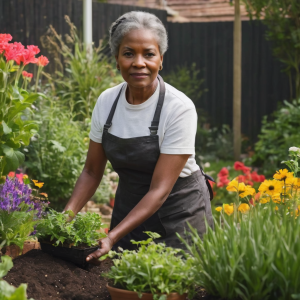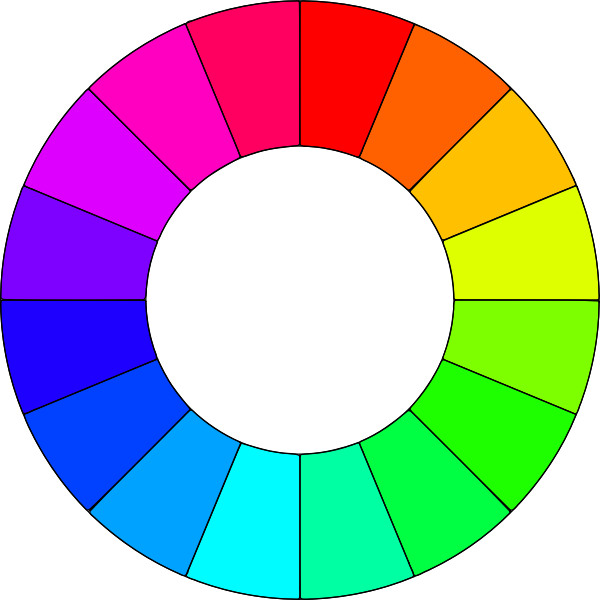17 SOMOS TODOS ESTUDANTES
WE ARE ALL STUDENTS
Somos todos estudantes
Learning Objectives
In chapter Somos todos estudantes, students will:
- continue to learn how to describe themselves and others with physical characteristics, personality traits, interests and hobbies;
- learn how to use present tense -ar, -er and -ir verbs;
- learn the verbs to have, to want and to do/make;
- learn about colors, numbers and telling time and
- talk about their academic life.
Warm-Up Activity
- Review of previous class material and new vocabulary
- A simple matching game where students match physical characteristics vocabulary words with their meanings.
Key Takeaways
This chapter introduces you to the world of college students in Portuguese speaking countries. See if you can notice the different pronunciations.
There are public and private universidades (also called faculdades) in the Lusophone world.
Angola:
Exercises
After watching the video, please answer the following questions:
- Qual é o nome da universidade? Como se chama a universidade?
- Onde está a universidade?
- Que palavras em português você entendeu?
Angola:
Exercises
After watching the video, please answer the following questions:
- Qual é o nome da universidade? Como se chama a universidade?
- Onde está a universidade?
- Que palavras em português você entendeu?
Portugal:
Exercises
After watching the video, please answer the following questions:
- Qual é o nome da universidade? Como se chama a universidade?
- Onde está a universidade?
- Que palavras em português você entendeu?
Brasil:
Exercises
After watching the video, please answer the following questions:
- Qual é o nome da universidade? Como se chama a universidade?
- Onde está a universidade?
- Que palavras em português você entendeu?
Brasil:
Exercises
After watching the video, please answer the following questions:
- Qual é o nome da universidade? Como se chama a universidade?
- Onde está a universidade?
- Que palavras em português você entendeu?
Descrições

Meu nome é Cristina. Eu sou brasileira, tenho 13 anos e moro em São Paulo. Sou aluna do sétimo ano em uma escola muito legal. A escola é perto da minha casa. Eu sou inteligente, divertida e atlética. As minhas atividades preferidas são: brincar, falar com as minhas amigas e praticar esportes. E você, como você é?

Meu nome é Lucas e sou do Brasil. Tenho 20 anos e moro em São Pedro da Aldeia, no estado do Rio de Janeiro. Sou honesto e não sou preguiçoso. Sou extrovertido, mas um pouco tímido. Também sou estudioso e bastante artístico. Eu não gosto de assistir futebol, mas gosto de dançar e de desenhar.

Meu nome é Maria. Sou do estado da Paraíba mas moro há 50 anos no Rio de Janeiro. Sou aposentada e tenho muitos amigos e conhecidos. Sou paciente, generosa e divertida. MInhas atividades favoritas são: ir à praia, dançar, viajar e cuidar de plantas.

Meu nome é Alexandra e tenho 43 anos. Sou do Rio de Janeiro, mas moro em São Paulo há mais de 20 anos. Tenho parentes na Paraíba, no Rio de Janeiro e em São Paulo. Trabalho com eventos e sou muito organizada e eficiente. Adoro conversar com as pessoas mas detesto gente chata!

Meu nome é Isabel e tenho 18 anos. Sou carioca, adoro praia e praticar esportes. Sou romântica e idealista. Não sou estressada, mas sou emotiva. Gosto de cozinhar e de escrever. Adoro poesia! Eu não trabalho mas estudo muito. Gosto de cachorros, mas não gosto muito de gatos.
Exercises
After reading the descriptions above, answer:
E você, como você é?
Look for a picture of a Lusophone celebrity on the internet.
Now, describe that person to the class.
Exercises
Listen to and read again the descriptions for Cristina, Lucas, Maria, Alexandra and Isabel and working with a partner, answer these questions:
- Quantos anos a Alexandra tem?
- Como é o Lucas?
- O que a Isabel gosta de fazer?
- Onde você acha que a Dona Maria está?
- Isabel gosta de gatos?
- Onde a Alexandra mora?
- O que o Lucas não gosta de fazer?
- Quais são as atividades preferidas da Cristina?
Present tense -ar verbs
The Present Tense of -ar ending verbs
There are three groups of verbs in Portuguese. The first group is -ar verbs:
- -ar endings verbs
- -er ending verbs
- -ir ending verbs
We’ll begin with the conjugation of regular -ar ending verbs. In the Present Tense, these verbs all share the same endings for each of the personal pronouns. They conjugate as follows:
Eu …..-o
Você … -a
O senhor …-a
A senhora … -a
Ele …-a
Ela …-a
Nós …-amos
Vocês …-am
Eles …-am
Elas …-am
Examples
- Eu falo português.
- Você estuda português.
- Nós escutamos música brasileira.
- Eles dançam nos fins de semana?
- CUNY fica em Nova York.
- Ela anda até o metrô.
- Vocês não trabalham hoje?
- Eu gosto de ensinar português para os meus alunos.
- Nós não gostamos de trabalhar aos domingos.
Key Takeaways
The verb GOSTAR DE should NOT be confused with the verb GUSTAR in Spanish.
While both mean the same thing (to like), there are THREE main factors to remember when using GOSTAR DE.
- First: The spelling is different. GOSTAR DE.
- Second: GOSTAR must be accompanied by DE (or its variations: DO, DA, DOS, DAS):
- Third: GOSTAR DE has a conjugation for each of the personal pronouns, just like any regular -ar verb.
Ele gosta de caminhar na praia.
Nós gostamos de aprender português.
Eu gosto da comida portuguesa.
__________________________________________________________________________________________________________
ACHAR QUE is used to express opinions (to think that, to suppose):
Eu acho que Angola é um país muito grande.
O que você acha que eles preparam na culinária caboverdiana?
Nós não achamos que os brasileiros falam espanhol.
Exercises
Fill in the blacks with the correct conjugation of the verb in parenthesis:
- Elas ________________ no restaurante. (trabalhar)
- Você _________________ na biblioteca. (pesquisar)
- Eu nunca ______________ em casa nos fins de semana. (ficar)
- Nós geralmente ________________ às 8 da noite. (jantar)
- Ele _____________ piano muito bem. (tocar)
- Vocês ___________________ esportes? (jogar)
- Que tipo de música você _______________? (escutar)
- À que horas ela _______________? (almoçar)
- Você ___________________ dançar? (gostar de)
- Que curso vocês _______________? (detestar)
- O que você _________________ eles estudam? (achar que)
- Onde você ___________________ que ela mora? (achar que)
Present tense -er verbs
The Present Tense of -er ending verbs
There are three groups of verbs in Portuguese. The next group is -er verbs:
- -ar endings verbs
- -er ending verbs
- -ir ending verbs
Now, we’ll show you the conjugation of regular -ar ending verbs. In the Present Tense, these verbs all share the same endings for each of the personal pronoun. Hence, they conjugate as follows:
Eu …..-o
Você … -e
O senhor …-e
A senhora … -e
Ele …-e
Ela …-e
Nós …-emos
Vocês …-em
Eles …-em
Elas …-em
Examples
- Eu escrevo um ensaio para a aula de inglês.
- Você bebe chá ou café?
- Nós comemos comida brasileira e portuguesa.
- Eles aprendem francês na universidade?
- Elas vivem uma vida muito feliz.
- Vocês não entendem o que a professora fala?
- Ela recebe muitos presentes de aniversário.
Exercises
Fill in the blacks with the correct conjugation of the verb in parenthesis:
- Eles ________________ os amigos na festa. (receber)
- O que você _________________ na aula? (aprender)
- Eu nunca ______________ poemas. (escrever)
- Nós sempre ________________água. (beber)
- Ele não _____________ carne. (comer)
- Vocês ________________ nos Estados Unidos ou em Moçambique? (viver)
- Que línguasl você _______________? (entender)
Key Takeaways
THE FOLLOWING -ER VERBS ARE CONSIDERED IRREGULAR.
IT MEANS THAT THEY CONJUGATE DIFFERENTLY FROM OTHER -ER VERBS.
These are some commonly used irregular -er verbs in Portuguese:
-
TER ( to have)
-
QUERER (to want)
-
PODER (to be able to)
-
FAZER (to do, to make)
TER (to have)
in the Present Tense
We use the irregular verb TER to talk about one’s age and to indicate one’s possessions. Here is the conjugation of TER in the present tense, with examples:
Examples
- Eu tenho muito amigos.
- Você tem uma caneta?
- Ele não tem muita paciência.
- Ela tem vinte e dois anos.
- Nós temos gatos e cachorros.
- Vocês têm computador ou tablet?
- Eles têm livros de português.
- Elas têm cadernos azuis.
Exercises
Working with a classmate, take turns asking and answering the following questions:
- Quantos anos você tem?
- O que você tem na sua mochila?
- Quantos estudantes tem na sala de aula de Português?
- Quantos/as amigos ou amigas você tem?
- Que cursos você tem este semestre?
- Que comidas a universidade tem para os alunos no restaurante?
QUERER (to want)
in the Present Tense
We use the irregular verb QUERER to express wishes and orders. Here is the conjugation of QUERER in the present tense, with examples:
Examples
- Eu QUERO um computador novo.
- Você QUER jantar agora?
- Ele não QUER uma mochila nova.
- Ela QUER aprender muitas línguas.
- Nós não QUEREMOS ter gatos e cachorros.
- Vocês QUEREM um café ou um guaraná?
- Eles QUEREM comprar livros de português.
- Elas QUEREM cadernos novos.
Exercises
Working with a classmate, take turns asking and answering the following questions:
- O que você quer de presente de aniversário?
- O que você quer fazer amanhã?
- Quantos estudantes querem visitar um país lusófono?
- O que os seus amigos querem de presente?
- O que você quer estudar no próximo semestre?
- O que você quer comer?
VERBOS QUE TERMINAM EM -er: comer, beber,escrever, aprender, viver, etc.
Eu como Nós comemos
Você come Vocês comem
Ele/ela come Eles/elas comem
VERBOS QUE TERMINAM EM -ir: assistir, discutir, sugerir, etc.
Eu discuto Nós discutimos
Você discute Vocês discutem
Ele/ela discute Eles/elas discutem
Key Takeaways
FIVE ESSENCIAL PORTUGUESE VERBS:
- FALAR (to speak)
- PODER (to be able to)
- TER (to have)
- QUERER (to want)
- IR (to go)
Colors and Numbers
As Cores e os Números
- branco/a
- preto/a
- azul
- marrom
- cinza
- verde
- vermelho/a
- amarelo/a
- rosa
- roxo/a

Exercises
- Working with a partner, ask each each other “Que cor é essa?” for the the colors on the color wheel above.
- Describe the colors of objects around you.
NUMBERS:
- 0 ZERO
- 1 UM/UMA
- 2 DOIS/DUAS
- 3 TRÊS
- 4 QUATRO
- 5 CINCO
- 6 SEIS
- 7 SETE
- 8 OITO
- 9 NOVE
- 10 DEZ
- 11 ONZE
- 12 DOZE
- 13 TREZE
- 14 QUATORZE/CATORZE
- 15 QUINZE
- 16 DEZESSEIS
- 17 DEZESSETE
- 18 DEZOITO
- 19 DEZENOVE
- 20 VINTE
- 21 VINTE E UM/UMA
- 22 VINTE E DOIS/DUAS
- 23 VINTE E TRÊS
- 24 VINTE E QUATRO
- 25 VINTE E CINCO
- 26 VINTE E SEIS
- 27 VINTE E SETE
- 28 VINTE E OITO
- 29 VINTE E NOVE
- 30 TRINTA
- 40 QUARENTA
- 50 CINQUENTA
- 60 SESSENTA
- 70 SETENTA
- 80 OITENTA
- 90 NOVENTA
- 100 CEM
Exercises
-
Quanto é…? Math! Write down the total for each calculation (make sudre to spell out the numbers!):
- 6+8= ________________________________________
- 15+61= _______________________________________
- 97-25= _______________________________________
- 23×2= ________________________________________
- 25:5= ________________________________________
- 3×15= ________________________________________
- 8×9= ________________________________________
- 60:70= _______________________________________
- 89+10= ______________________________________
- 71×6= ________________________________________
-
Listen to each number and write them down:
- ____________________________________________
- ____________________________________________
- ____________________________________________
- ____________________________________________
- ____________________________________________
- ____________________________________________
- ____________________________________________
- ____________________________________________
- ____________________________________________
- ____________________________________________
TELLING TIME – As Horas
Telling time in Portuguese involves using a combination of numbers and specific phrases.
When stating the time, you typically use the following pattern: “Hour + Minutes.”
QUE HORAS SÃO?
-
-
-
Basic Phrases:
- Que horas são? – What time is it?
- Que horas são agora? – What time is it now?
-
Hour and Minutes:
-
- São duas horas – It’s two o’clock.
- São três e quinze – It’s three fifteen.
- São cinco e meia – It’s five thirty.
- São vinte para as sete– It’s twenty minutes to seven.
- São nove e quarenta – It’s nive forty.
-
-
Time Periods:
- da manhã – in the morning
- da tarde – in the afternoon/evening
- da noite – at night
- São nove da manhã – It’s nine in the morning.
- São cinco da tarde – It’s five in the afternoon.
- São dez da noite – It’s ten at night.
-
Additional Phrases:
- Meia-noite – Midnight
- Meio-dia – Noon
- É meia-noite – It’s midnight.
- É meio-dia – It’s noon.
-
-
Key Takeaways
Remember that when the minutes are between 1 and 30, you often use the word e (and) to connect the hours and minutes. When the minutes are between 31 and 59, you use menos (minus) to indicate the minutes until the next hour.
For example:
-
-
- São seis e meia da manhã – It’s six thirty a.m.
- São três e quinze da tarde – It’s three fifteen p.m.
- São dez para as nove da noite – It’s ten minutes to nine p.m.
-
CONVERSATIONS IN PORTUGUESE
CONVERSAS EM PORTUGUÊS
Conversa 1:
Isabel and Lucas talk about their school and their classes.

Lucas: Bom dia, como você está?
Isabel: Bom dia, estou bem, e você?
Lucas: Estou bem, obrigado. Como é o seu dia a dia na escola?
Isabel: É legal. Qual é a sua matéria favorita?
Lucas: A minha matéria favorita é matemática. E a sua?
Isabel: A minha é português. Como é a sua professora?
Lucas: Minha professsora é engraçada. E o seu professor?
Isabel: O meu professor é muito chato.
Conversa 2:
Ana and Beatriz talk about their likes and dislikes.

